Raccoons are generally nocturnal creatures, which means they are most active at night and sleep during daylight hours. They tend to avoid animals, so they search for food while all of us are sleeping. But still, there are a few times when you will spot a raccoon wandering your neighborhood during the day.
Why is a raccoon out during the daytime? Don’t be alarmed if a raccoon wanders into your yard during the day; she may not be ill or dangerous. They probably have been forced to leave their present hideout and are now moving to a new location. During the early spring, raccoons may also spend extended hours searching for food for their young.
Raccoons can also be nuisance pests indoors or in the yard. If you think there’s a raccoon inside your house day and night, this article can help you.
Where Do Raccoons Live During the Day?
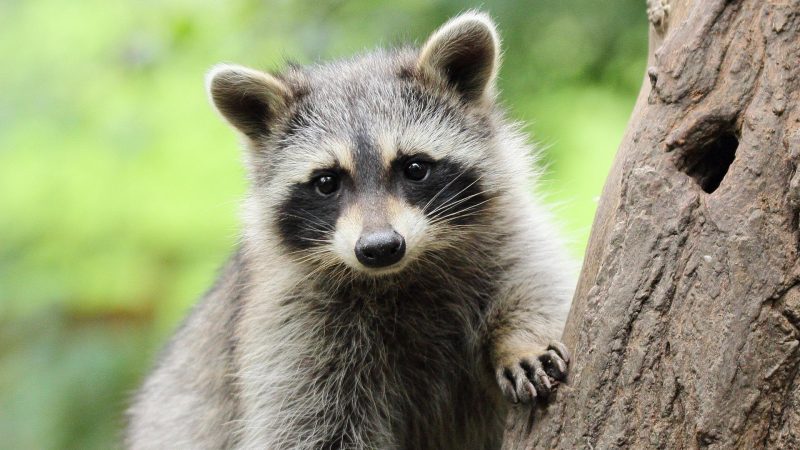
During the day, raccoons usually stay in their dens in ground burrows, hollow trees, brush piles, and sometimes, even in rock crevices.
But because raccoons also adapt well in urban and suburban environments, they may live in backyards and dark, hidden places inside a house such as chimneys and attics.
Why Would a Racoon Be Out During the Day?
During the day, raccoons rarely come out from their dens. So when they do, it means they have very important activities.
This includes looking for a new place to stay because their current den is no longer safe for their babies, also called kits. Also, predators could already be present, or their den has been damaged.
Another possible reason is that mother raccoons are searching for their babies. Kits are usually born in the early spring.
These baby raccoons still depend on their mother for food, and they will eat more as days go by. This is why you are most likely to see raccoons during the day, especially between March and April.
What to Do if You See a Racoon During the Day?
If you spot a raccoon during the day and it looks healthy, don’t try to approach it. If it is not bothering you, don’t bother the animal.
On the other hand, if the raccoon looks sick, walks erratically, or has discharge from its eyes or mouth, it may have been infected with rabies. Contact your local wildlife service at once.
Are Raccoons More Aggressive During the Day?

Raccoons are not necessarily aggressive during the day. The level of aggressiveness of raccoons doesn’t depend on the time of the day but rather on the situation.
Generally speaking, these masked mammals can become aggressive when they are provoked, cornered, and protecting their babies. In most cases, raccoons with rabies are also aggressive.
Related: Do Raccoons Attack Humans and Our Pets (Cats, Dogs, and Others)? | Information and Facts
Is a Raccoon That Is Active During the Daytime Rabid?
Contrary to common misconceptions, a raccoon that is active during the day does not necessarily mean that it has rabies. However, it is quite hard to tell if a raccoon has rabies based only on its behavior. This is because some symptoms of rabies are also the same as the symptoms of other infectious diseases.
How Do You Know If a Raccoon Has Rabies?
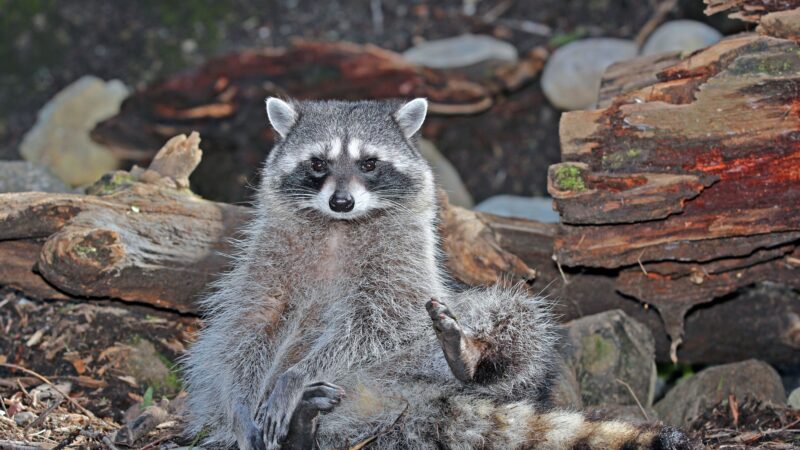
Here are some of the visible signs or symptoms that a raccoon might have rabies:
- Agitated, looks disturbed
- Repeated screaming
- Nervous for unknown reasons
- Extremely angry
- Partially paralyzed
- Discharge from mouth and eyes
- Self-mutilation or biting itself
But again, these symptoms may also appear in raccoons if they don’t have rabies but rather other diseases. This is why you should not approach a raccoon (adult and baby) unless you are a professional.
How Likely Is It for a Raccoon to Have Rabies?
According to a 2018 study, raccoons ranked second as the most frequently reported wild animals in the United States, and are 30.3%. Bats led the list with 33%, while skunks and foxes are 20.3% and 7.2%, respectively. Raccoons are also considered one of the primary carriers of rabies in the country.
Can Raccoons Carry Rabies Without Symptoms?
Raccoons can be carrying rabies without symptoms. There are two main types or forms of rabies – furious and dumb.
A raccoon with furious rabies may display odd behaviors such as unprovoked aggression or act disorientated. Meanwhile, a raccoon with dumb rabies may appear tame and somehow friendly.
Related: Raccoon Feces (Toxicity, Dangers, and Diseases) | Control and Prevention
Do Baby Raccoons Have Diseases?
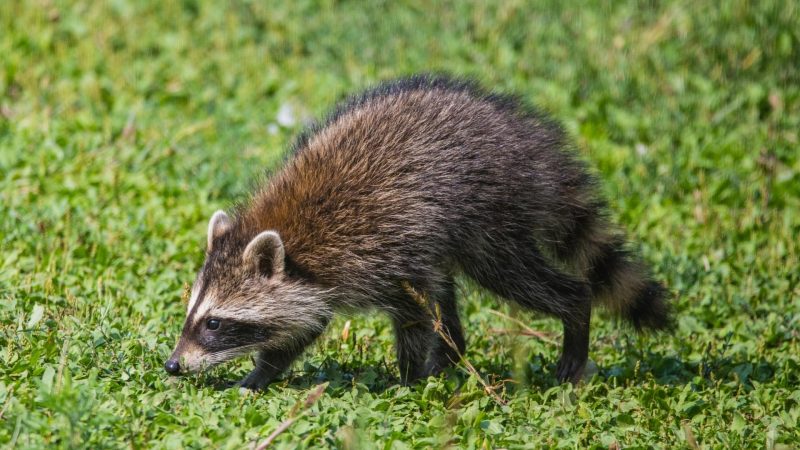
Some but not all baby raccoons carry diseases without your knowledge. In fact, many of them may be born with infectious diseases that they got from their mother.
Generally speaking, both young and adult raccoons can shed parasites, bacteria, and viruses that can lead to certain serious illnesses.
Can Raccoons Be Pets?
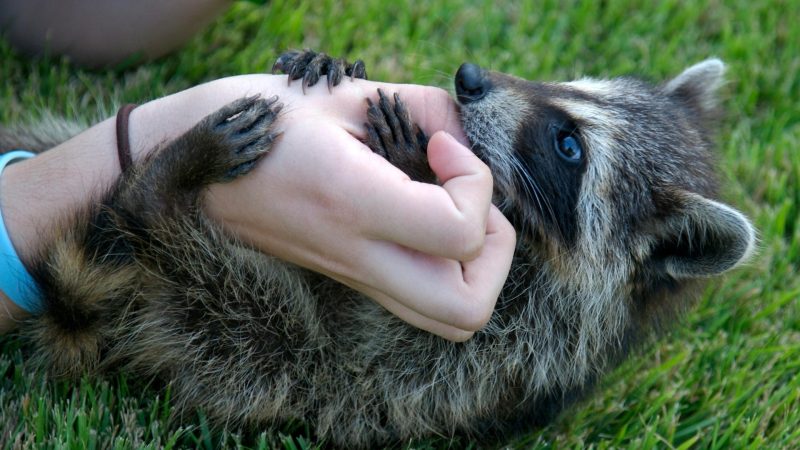
Raccoons can be pets, but it is not advisable to have one in your home. To start with, most US states ban having pet raccoons and securing a permit has lots of requirements.
But more importantly, raccoons don’t make good pets because they are wild animals and can be aggressive without a warning.
Aside from rabies, raccoons can also carry other infectious diseases such as canine distemper, Salmonella, and leptospirosis. Keeping raccoons as house pets also deprived them of their right to live in their natural habitat.
Most of them will not adapt once you decide to bring them back into the wild and will die.
Pet raccoons are also extremely high maintenance because you will need lots of space for them, and you cannot always keep them inside a cage.
Raccoons also require maximum supervision because they climb everywhere and can destroy things. Not to mention, raccoons can also be very noisy at night.
Signs of a Raccoon Infestation
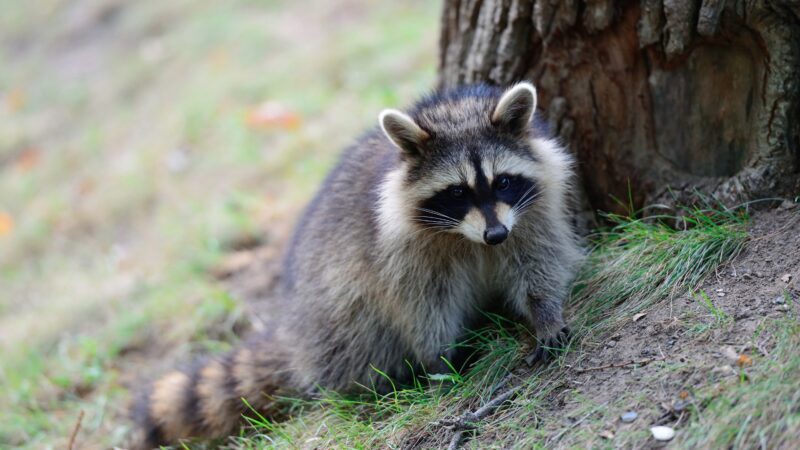
As mentioned above, raccoons are nocturnal mammals. Therefore, you might also notice their presence inside your house, mostly at night. Below are some of the signs of a raccoon infestation:
- Scratching noises from the ceiling and walls
- Racoon sounds such as snarling, whimpering, and screaming
- Baby raccoon sounds such as crying and whining, especially in the early spring.
- Damaged electrical wires in the walls
- Destroyed insulation ducts for heat and air conditioning units
- Presence of droppings in the attic or chimney
- Urine stains on the ceiling
- Very foul odor in the chimney or attic
- Parasites such as fleas coming out from the ceiling
- Raccoon paw prints in the yard
- Consumed or damaged vegetable plants in the garden
- Toppled garbage cans
How to Get Rid of Raccoons Naturally?
Getting rid of raccoons outside your house can be challenging as there is no single way to do it effectively.
Raccoons are very stubborn animals and may attack you, especially mothers with babies. In most cases, they will not leave their kits behind or will leave but will come back for them sooner than you think.
Meanwhile, killing raccoons or using harsh chemicals to drive them away are both not good ideas. Exterminating them is inhumane and is also illegal in most states. Their carcasses also leave a very foul smell.
On the other hand, spraying harsh chemicals on them is also not humane and is not proven effective.
Therefore, exclusion is the best natural way to get rid of raccoons from your property. You should also think of ways to prevent them from coming back.
However, these home intruders can become vicious when cornered. To avoid being bitten by raccoons, here are some ways to get rid of them naturally:
- If there are baby raccoons, wait for them to grow older until they can leave with their mother. Otherwise, they will die of starvation inside your house.
- If the raccoon has no babies, provide an exit path where the animal can escape quickly and safely.
- If the raccoon is in your chimney, close the damper. Put a loud radio at the bottom of the damper.
- If the raccoon is in your attic, you can also use loud music, loud horns, or flashing lights to scare the animal out of your house.
- Raccoons hate strong smells, such as ammonia and vinegar, but you may have to spray consistently. These scents also may pose health risks to humans, especially to small children.
- Use safe raccoon traps such as ANT MARCH Live Animal Cage Trap . For the bait, you can use wet cat food, canned tuna, fresh fruits, or marshmallows.
Note, however, that you should not release or relocate the trapped raccoon. Relocating raccoons is illegal, and the animal may also attack you. Instead, contact your local wildlife welfare agency immediately.
They know exactly how to handle wild animals and where these raccoons should be relocated.
Related: Natural Raccoon Repellents That Work | Control Guide
List of Sources
Baldwin, R. A. (2014). Raccoons. University of California Agriculture & Natural Resources.
Cochran, S. PESTS & WILDLIFE — You can’t tell if an animal is rabid just by its behavior. University of Nebraska-Lincoln.
Link, R. (2004). Raccoons. Washington Department of Fish and Wildlife.
Ma, X., et al. (2020). Public Veterinary Medicine: Public Health: Rabies surveillance in the United States during 2018. Journal of the American Veterinary Medical Association.
- How to Get Rid of Copperheads | Practical Guide - August 27, 2023
- How to Get Rid of Corn Snakes | What Makes Them Aggressive? - August 27, 2023
- How to Get Rid of Alligators | Safety Measures and Removal Methods - July 16, 2023
